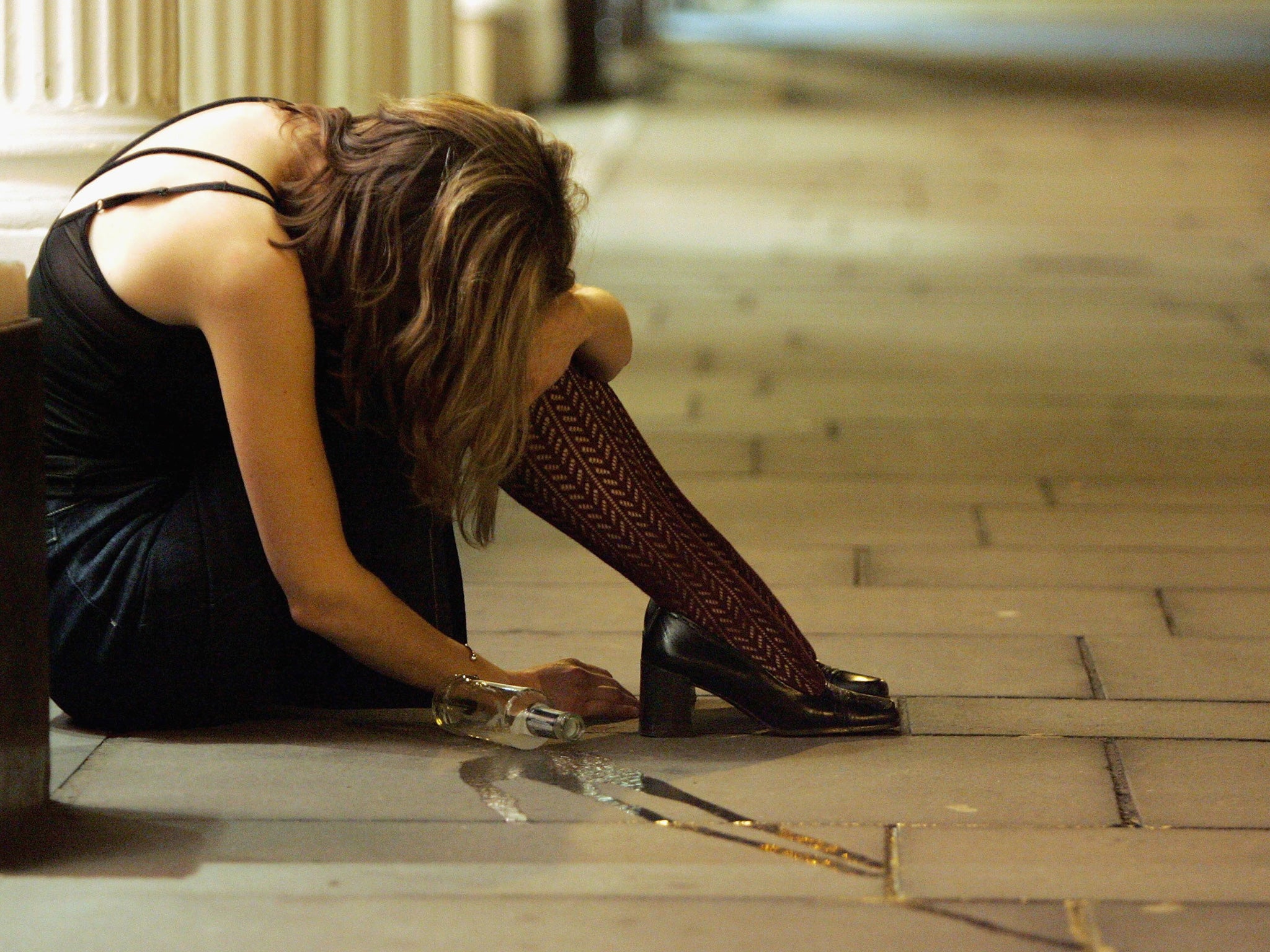Saving party-goers from themselves: Bristol opens 'drunk tank' for intoxicated revellers
Scheme will be run as a multi-agency partnership with police, ambulance service, health organisations and licencees

A city's emergency services have become the first outside London to open a "drunk tank" where intoxicated revellers can sober up or receive medical treatment.
Under the scheme, drunks considered a danger to themselves will be put into cells to recover from the effects of alcohol.
The first alcohol recovery centre (ARC) will open in Bristol tomorrow night, following a successful pilot last autumn.
The ARC will initially operate over the festive period, tackling problem drinking to improve safety for those enjoying nights out in the city centre.
But the scheme - run as a multi-agency partnership with police, the ambulance service, health organisations and the National Licensed Trade Association - could eventually be rolled out on a more permanent basis.
Chief Inspector Catherine Johnstone, of Avon and Somerset Police, said: "We want to ensure people are safe and don't become victims of crime as a result of being vulnerable through drinking excessive amounts of alcohol.
"It is about responsible drinking whilst enjoying yourself in a fantastic city such as Bristol. The ARC demonstrates how partnership working can deliver quality integrated services."
The phrase "drunk tank" is an import from the US, where ARCs are already in operation. Versions of the scheme have also run in Poland and Australia.
Traditionally, a drunk tank is a cell or separate facility accommodating people who are intoxicated, especially through alcohol.
The Bristol ARC will be held at a secret location in the city centre to ensure only those treated by paramedics or referred by police or publication access the service.
People in need of help or treatment will be identified through 999 calls and contact from pubs and clubs and then the ARC's treatment vehicle - a non-emergency ambulance staffed by care assistants - will attend incidents.
The ARC will help the police and the emergency services by freeing up resources so that those on the front line do not have to treat non-emergency cases of excessive drinking.
It is hoped it will reduce the likelihood of people becoming violent or causing trouble after consuming too much alcohol. But it can also be used as a place of safety for people who are particularly inebriated.
Peter Brown, from the South Western Ambulance Service NHS Foundation Trust, said: "It is important that our patients receive the right care in the right place at the right time and the ARC provides us with a safe and appropriate environment to treat those who are suffering from alcohol-related illness following excess consumption. We wish everyone a happy and healthy festive period and a safe one too."
Bristol mayor George Ferguson said: "Whilst Christmas is a time of celebration and indulgence, it is important to drink responsibly.
"Bristol city centre has been awarded the Purple Flag for the last four years in recognition of having a well-managed night-time leisure economy.
"The key components of the scheme, centres are required to demonstrate that they are safe and secure, have strong private and public partnerships, and are an attractive destination of choice.
"The setting up of the alcohol recovery centre is a significant part of the jigsaw and will provide a valuable contribution to the wellbeing of residents and visitors to Bristol city centre at night."
Matt Seaward, from the National Licensed Trade Association, said: "Nationally, having an ARC in city centres can reduce admissions into A&E wards by a significant amount.
"Similarly, the ARC allows the police to be more visible on the streets of Bristol city centre during a busy festive period."
Earlier this year, the Association of Chief Police Officers called for privately-run drunk tanks to help deal with problems caused by excessive alcohol consumption.
People held in these ARCs would be liable to pay a charge of up to £400 for security and medical staff to care for them overnight.
Mr Brown said the ARC would be able to treat up to 12 people at any one time.
"The idea is to free up ambulance crews, hospital beds and police time by providing somewhere for people to go where they can be looked after," he said.
"The Arc is not a hotel or a B&B - you cannot check in for the night. This is really a place of safety until we can get somebody back to a position where they can look after themselves or indeed there is a relative or friend who can look after them.
"We are actively working towards that - people will not be with us for the duration of the evening - just to the point we can place them with somebody else.
"It is a primitive facility as it is not set up to be like an A&E department. This is for those that should not be in an A&E department because they are not necessarily ill or injured, they are just vulnerable because they have consumed too much alcohol."
Ms Johnstone described the ARC as a "very simplistic" facility.
"This is about people taking personal responsibility when they are out in the centre that they don't become so drunk or intoxicated through alcohol that they cannot look after themselves," she said.
"They could end up in police custody but we genuinely don't want that. It is not the right place for someone who is simply drunk and vulnerable.
"It's about responsible drinking and looking after people who are vulnerable outside of the A&E department."
PA
Join our commenting forum
Join thought-provoking conversations, follow other Independent readers and see their replies
Comments
Bookmark popover
Removed from bookmarks